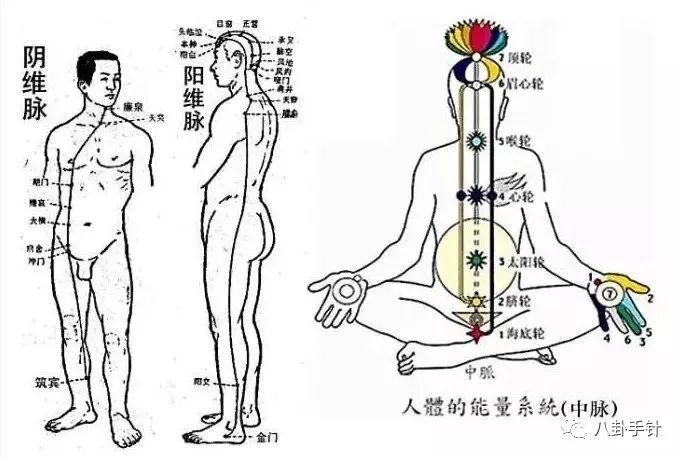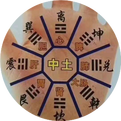
What are the Eight Extraordinary Meridians?The Eight Extraordinary Meridians refer to the Ren Mai (Ren Meridian), Du Mai (Du Meridian), Chong Mai (Chong Meridian), Dai Mai (Dai Meridian), Yin Qiao Mai (Yin Heel Meridian), Yang Qiao Mai (Yang Heel Meridian), Yin Wei Mai (Yin Linking Meridian), Yang Wei Mai (Yang Linking Meridian). Unlike the twelve primary meridians, they do not directly correspond to the organs and do not have a paired relationship with the exterior and interior. Their pathways are unique and unconventional, hence they are called the extraordinary meridians.Their functions include:1. Connecting the relationships between the twelve meridians;2. Regulating the accumulation and distribution of qi and blood in the twelve meridians.The Functions of the Eight Extraordinary Meridians:The Eight Extraordinary Meridians intricately circulate and distribute among the twelve meridians, and their functions are primarily reflected in two aspects.Firstly, they connect the relationships between the twelve meridians. The Eight Extraordinary Meridians link meridians that are close in location and similar in function, achieving the effect of governing the related meridians’ qi and blood, and coordinating yin and yang.The Du Mai is connected to the six yang meridians, known as the “Sea of Yang Meridians”, which regulates the qi of all yang meridians; the Ren Mai is connected to the six yin meridians, known as the “Sea of Yin Meridians”, which regulates the qi of all yin meridians; the Chong Mai is connected to the Ren and Du meridians, as well as the Foot Yangming and Foot Shaoyin meridians, hence it is referred to as the “Sea of Twelve Meridians” or “Sea of Blood,” which has the function of storing the qi and blood of the twelve meridians; the Dai Mai restrains and connects the longitudinal meridians of the lower body; the Yin and Yang Wei Mai connect the yin and yang meridians, respectively governing the interior and exterior of the body; the Yin and Yang Qiao Mai govern the movement of the lower limbs and the states of wakefulness and sleep.Secondly, the Eight Extraordinary Meridians regulate the accumulation and distribution of qi and blood in the twelve meridians. When the qi and blood of the twelve meridians and organs are abundant, the Eight Extraordinary Meridians can store it, and when the body’s functional activities require it, the Eight Extraordinary Meridians can supply it.The points of the six meridians of Chong, Dai, Qiao, and Wei are all associated with the twelve meridians and the Ren and Du meridians. However, the Ren and Du meridians each have their own specific points, thus they are collectively referred to as the “Fourteen Meridians”. The Fourteen Meridians have specific pathways, symptoms, and associated points, forming the main part of the meridian system, which is the basis for acupuncture treatment and the application of herbs in clinical practice.

Characteristics of the Eight Extraordinary Meridians:The Nanjing (Classic of Difficulties) states in the twenty-seventh difficulty:“All eight of these do not adhere to the meridians, hence they are called the Eight Extraordinary Meridians.”This means that the Eight Extraordinary Meridians differ from the twelve primary meridians, and their characteristics are as follows:(1) The Eight Extraordinary Meridians do not belong to the organs and do not have a paired relationship with the exterior and interior. The five organs govern the body, while the six bowels guard the five organs. The meridians serve as the pathways for the organs, thus they can be said to have a relationship with the body, essence, and spirit, similar to how water can both float and capsize a boat.(2) Except for the Ren and Du meridians, which have their own independent points, the points of the other six meridians are associated with the twelve primary meridians and the Ren and Du meridians.(3) The pathways of the Eight Extraordinary Meridians are intertwined among the twelve meridians, and they intersect with the primary meridians at multiple locations in the body. Therefore, the Eight Extraordinary Meridians have the function of storing the qi and blood of the twelve meridians and regulating their abundance and deficiency. When the qi and blood of the twelve meridians and organs are abundant, the Eight Extraordinary Meridians can store it, and when the body’s functional activities require it, the Eight Extraordinary Meridians can supply it. The twenty-eighth difficulty of the Nanjing compares the twelve meridians to “canals” and the Eight Extraordinary Meridians to “lakes and marshes”, vividly illustrating this function. #Baguazhang Needlework Student Sharing# (We welcome everyone to actively share and don’t forget to like!)
#Baguazhang Needlework Student Sharing# (We welcome everyone to actively share and don’t forget to like!)

